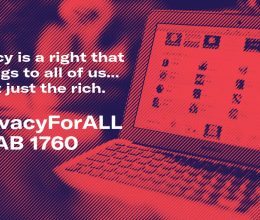Radio Frequency Identification (RFID) tags are tiny computer chips that can be encoded with any type of information. These chips are embedded within documents or objects to be used for monitoring or tracking purposes. When an RFID reader emits a radio signal, the RFID tags in the vicinity respond by automatically transmitting their stored information to the reader, at a distance, without alerting anyone that the tag is being read.
RFID technology originally gained a foothold in the commercial sector as a means to allow real-time monitoring and tracking of cattle in the fields and inventory moving through the supply chain.
U.S. government initiated the rollout of RFID-embedded passports, and there are potential plans to embed RFID tags in other identification documents.
How does it really work? The information that has traditionally been printed on the face of ID cards, such as our name, address, and unique identifier number, is encoded on the chip in the card. Without adequate privacy and security protections, our personal information could be transmitted without our knowledge. That means that whether we are walking down the street, participating in a political rally, or visiting a doctor's office or a gun show, we are at risk of being tracked and stalked and of having our identity stolen.
The ACLU has been working to protect privacy, personal safety, and financial security and bring attention to the risks associated with the use of RFID technology in identification documents.
Don't Chip Our Rights Away!
Related Issues
Related content
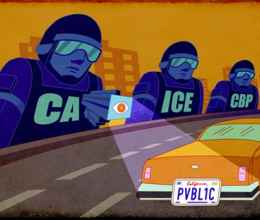
Lagleva et al. v. Doyle
October 14, 2021
Prevent Expansion Of Facial Recognition Tech (Oppose AB 2261)
May 21, 2020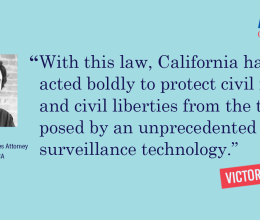
California Governor Signs Landmark Bill Halting Facial Recognition...
October 9, 2019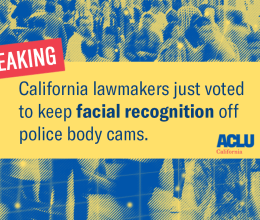
California Senate Votes to Block Face Recognition on Police Body...
September 11, 2019California Legislature Caves to Big Tech Pressure Again and...
May 16, 2019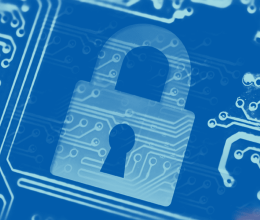
California Assembly Privacy Committee Kills Consumer Privacy Bill...
April 23, 2019ACLU Files Amicus Brief in Suit to Remove San Diegan from the...
April 5, 2019Privacy for All (AB 1760)
April 3, 2019